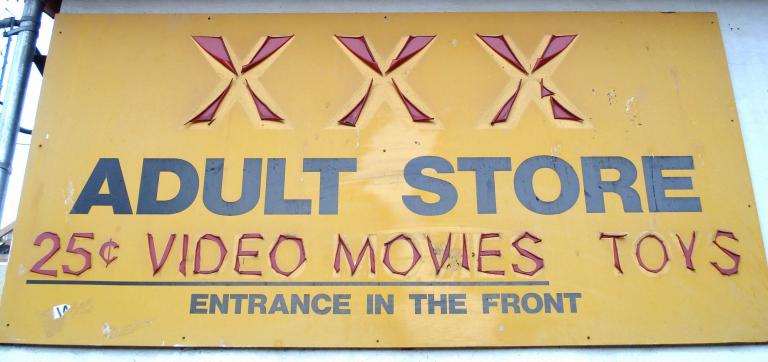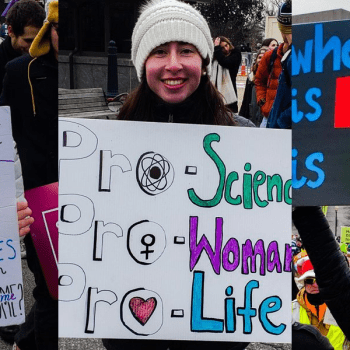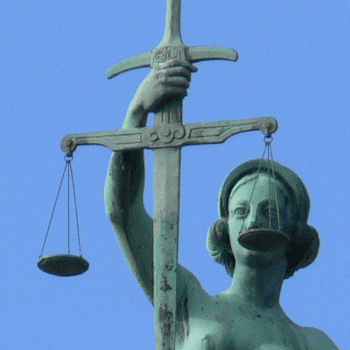
With 57% of Americans saying viewing pornography is morally wrong and experts in agreement about the dangers of adolescent exposure to porn, it would seem like a winning cause for politicians to take up. Yet, politicians on both sides seem to ignore this issue. As internet pornography often gets more and more extreme, neither major party stands up for decency.
A recent article on Politico discusses the rise and fall of the anti-porn movement in depth. I want to quote some passages and offer some analysis. Before drawing conclusions, I’ll go through how religious leaders abandoned the fight, the Internet’s effect, and the current anti-porn movements.
Religious Leaders Abandoned the Fight
We can compare 1976 to 2016. Politico tells a story of each.
The interview [of Jimmy Carter] had run in Playboy magazine, alongside nude photographs of Miss November and articles such as “The Vatican Sex Manual” and “Prurient Puritans.” In his televised Sunday sermons, [Jerry] Falwell began railing against Carter’s courtship of the randy men’s magazine and its 5 million readers. When Carter’s team tried to block one of his antagonistic sermons from being broadcast shortly before Election Day, claiming it violated the Federal Communications Commission’s Fairness Doctrine, Falwell raised the stakes. He assembled a group of leading fundamentalist ministers at the National Press Club in Washington and accused Carter of “muzzling a preacher of the gospel from preaching his moral convictions.”
When endorsing Trump, Falwell’s son seemed to have lost that focus.
Hours earlier, the younger Falwell [Jerry Jr.] had introduced the GOP presidential candidate Donald Trump to a massive gathering of Christian leaders, calling him “God’s man,” anointed to lead the nation in turbulent times. […] As they celebrated back at Trump Tower, Falwell sought to document the occasion with a photo. The future president stood in the middle, flanked by Falwell Jr. and his wife, Becki. Thumbs went up. The camera snapped. Falwell tweeted the photo to his 60,000 followers. There was just one hiccup: Lurking over Becki Falwell’s left shoulder, framed in gold, was a cover of Playboy, graced by a bow-tied Trump and a smiling brunette covered only by his tuxedo jacket.
This is a failing on several levels. Overall, it shows the complete abandonment by these Christians of criticism of porn.
Local Churches
Politico goes on to point out how this negatively affects individual churches and preachers.
Evangelical leaders I spoke with cited instances of pastors shying away from the subject for fear of alienating their congregants. “It’s very pervasive even in the church,” Perkins says. “It’s not just men, it’s women, too. … Some pastors are afraid to hit the issue too hard.”
When pastors know there is a serious moral issue but they don’t speak up about it, they abandon their congregation to the mores of society.
The Rise of the Internet
Porn has exploded in recent years, mainly online.
Ronald Reagan convened a Presidential Commission on Pornography in 1985; two years later, Reagan held a press conference to announce his administration’s plan to combat illegal obscenity—and issue a warning to the porn professionals: “Your industry’s days are numbered.”
Instead, the industry exploded. Today, pornography in America is a societal phenomenon and an economic behemoth. As of late 2018, according to Alexa.com, five of the 50 most trafficked websites in the United States. belong to the adult industry. The biggest site, Pornhub, typically ranks around No. 15, in the neighborhood of titans like Netflix and ESPN.
Porn vs. Legal Consequences
The relationship of the internet’s accessibility causing porn’s proliferation there with the end of legislation or enforcement against porn is a complex one.
And everyone agrees that the advent of the World Wide Web sparked pornography’s historic propagation. The blame game boils down to the chicken or the egg: Did the explosion of internet porn make obscenity prosecutions pointless, or did the lax enforcement invite the explosion of internet porn? Whatever the answer, it’s clear that the 1990s, a time of peace and prosperity and a whiff of libertinism, marked the start of this modern era of mass porn consumption.
Tony Perkins, president of the Family Research Council, points to how this proliferation lead to moral leaders abandoning political actions regarding porn.
“It’s still a very big issue, but it’s not necessarily a policy issue because the internet has made it so that it’s everywhere,” he says. “I mean, even before the internet, the government didn’t do a good job of policing it. So how do you get the genie back in the bottle?”
Moving from Politics to Personal
The anti-porn movement has essentially abandoned politics. The only thing currently even semi-enforced is that schools who get federal funding need to have filtered wifi access on computers used by students. Obscenity laws as on the books make a lot of hard-core porn illegal to produce and distribute… but nobody has been prosecuted for decades.
Asking Businesses to Filter
As the anti-porn movement has moved away from politics in the US, they’ve moved into two other areas. First, it decided to motivate businesses to filter free wifi instead of asking governments to do so.
America is an exception in this sense. Many governments around the world aggressively police erotic content; even the liberal nation of Iceland has toyed with a sweeping ban on pornography. A controversial British law requiring internet users to be registered and age-verified before accessing adult websites is expected to be implemented by year’s end. There is no prospect for such action on this side of the Atlantic, in part because the First Amendment’s protections are so strong, but also because political appetite is so weak. In lieu of legislative intervention, advocacy groups work the edges of the issue, pressuring companies such as McDonald’s, Subway, Starbucks and Panera Bread to install filters on their free Wi-Fi networks.
Given the ubiquity of cell phones or home broadband with unlimited data, all this tends to do is make public porn viewing less likely. If we could get cell carriers or broadband companies to offer a filtered option would be a big step forward. It wouldn’t be perfect but would allow parents to keep non-techie teens away from porn.
Personal Choice
Another option pursued by some of the biggest groups today like Fight the New Drug is to move to convincing individuals to say no to porn rather than legislate.
The adult industry’s most notable modern adversary is Fight the New Drug, a well-heeled organization that grabbed headlines a few years ago by plastering “Porn Kills Love” billboards all over San Francisco. Hoping to transcend the stereotypes attached to the old opposition—stuffy, Bible-thumping zealots—Fight the New Drug markets itself as stylish and tech-savvy.
Some, like NoFap, are even more explicitly about personal choice. NoFap states in the “What NoFap is NOT” section.
NoFap does not support legislation to restrict the creation or consumption of pornography. In an interview with Maclean’s Magazine, NoFap’s founder Alexander Rhodes described himself as “‘an Internet-freedom zealot’ who thinks the dangerous effects of porn are best dealt with in sex-ed class and not through government regulation.” NoFap believes that the solution to porn addiction comes from education rather than legislation.
Although such goals and directions are laudable, they shouldn’t come at the expense of legislative action. Porn is especially damaging to young people: yet 79% of 13-to-17-year-olds have viewed porn. For many, it is becoming the substitute for a proper sex education based around chastity and the dignity of the person.
Going Forward
The paragraph after the one about pastors avoiding preaching on porn summarizes the whole political problem. When we – as a Church – let moral decay happen in our congregation, we leave society and politicians without a defense.
If politics is downstream from culture, and culture has accepted porn, why wouldn’t politicians do the same? If pastors are afraid to alienate their constituents by condemning porn, what policymaker in his or her right mind would?
We, as Christians, need to stand up against this problem in every way we can. Both helping people see the dangers, preaching about morality and legislating to protect kids.
If you want to read the rest of this Politico article, it is worth it but it is 7300 words so grab a cup of coffee first.
My Modest Proposal
Ideally, there would be no pornography but realistically right now, I don’t think we can ban the adult use of most porn. I want to propose three simple ideas that could be legislated and enforced. I think both of these might be able to gain decent support if politicians took up the cause.
Obscenity Laws
First, enforce obscenity laws that make more extreme pornography illegal. This almost happened under Bush Jr. except the administration got sidelined by terrorism after 9-11. His attorney general planned on, “targeting the producers of hardcore material—depicting, for example, rape, violence or bodily waste—that satisfied the complex Miller test.”
Internet Filters
Second, require internet providers to provide the option of filtered internet. FIltering on the level of the server that Comcast, Verizon or T-Mobile has is harder to bypass than a local filter and wouldn’t cost such companies much to operate. I wish when you signed up, you had to answer filtered or not. Obviously, such a solution would be imperfect as no method of blocking porn gets every image.
Move Porn to .xxx
The third would make the second much more effective. However, it would require some international cooperation. ICANN the non-profit that keeps the database of sites so when I type a web address into my browser, it goes to the right computer. Most of us think of websites ending with .com, .org, or similar but they have approved a whole slew of possible ending to website names. These include .xxx, .sex, and a few other for pornographic sites. Why couldn’t we force all pornography to be on such sites? That would make filtering easy. If a website currently has .com or similar it is pretty easy to simply make that redirect to .xxx. This would make filters super easy to maintain if that division was maintained. It would be much like video stores 20 years ago. Everyone could browse around the front but you had to be over 18 to step in the room at the back.
I hope we can end society’s porn epidemic.
Updates:
- I did a further article on Starbucks & Tumblr banning Porn before Notre Dame.
- Please support me on Patreon so I can make more content like this. $2 a month helps and gets you my weekly news summary email.












